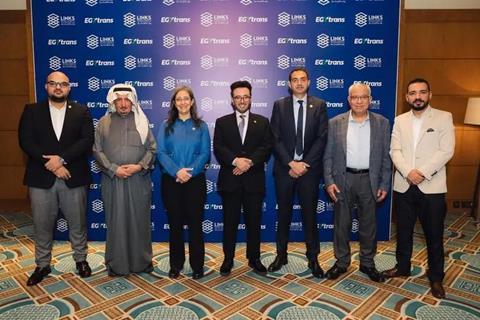Egyptian logistics and transport provider Egytrans and Saudi-based investment firm Links Investment will establish a limited liability company in Saudi Arabia.
Both entities will hold an equal 50 percent stake in the company, which will be headquartered in Riyadh and offer comprehensive services in the transport and logistics industry. The joint venture should be set up by the end of the first quarter next year.
Leveraging Egytrans’ expertise in project logistics, particularly in the oil, gas, and renewables sectors, the company intends to align with Saudi Arabia’s upcoming large-scale renewable energy projects scheduled for implementation in 2025 under the Vision 2030 programme. This move aims to meet the growing logistics demands and renewable energy initiatives in the region. The collaboration will draw upon Links Investment’s significant business diversification, extensive asset base, international partnerships, and substantial land bank across the Kingdom, enabling the expansion of operations and enhancement of logistical capabilities.
“Egytrans has long pursued a strategic approach to expansion, aiming to seize growth prospects not only in Egypt but on a broader international scale,” said Abir Leheta, ceo of Egytrans. ”Our recent acquisition of NOSCO, a significant heavy transport player in Egypt, highlights our commitment. The collaboration with Links Investment, a dynamic Saudi Arabian enterprise, to establish a pioneering company focusing on wind farm and other specialised transport solutions is a strategic move. This collaboration, based on shared objectives, aims to capitalise on the burgeoning Saudi market.”
Saudi Arabia stands as the largest potential market for logistics providers in the region, with analysts estimating up to USD240 billion as the total value of projects under execution in the country, and USD1.8 billion available for third-party logistics providers. The country’s logistics sector shows significant growth potential driven by economic diversification, increased trade activities, substantial infrastructure projects, and government initiatives positioning Saudi Arabia as a regional logistics hub.

















